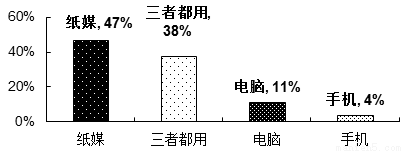题目内容
When I was 10, I was diagnosed with cancer. During treatment, I understood everything but the ______ of my case. It was not until recently that I realized how sick I was then.
This November of 2015 will ______ my five years off chemotherapy(化疗) and I will be finally _____of cancer.
I know sick children often felt blue. In order to help brighten their ______, I created a program through which I brought celebrities(名人) children ______ and respected to visit them in hospitals. The ______ I received from being able to ______ up the children’s day was indescribable.
This fall, I will ______ my junior year of high school. I love learning and I truly ______ the time spent in school because during chemotherapy treatments I was often too ______ to attend. Another big part of my life is______ activity. During my treatment it was very hard for me to walk — let alone ______. After finishing chemotherapy my main ______ was being able to run and play ______ again. I’m overjoyed to say I’ve been able to ______ that aim. Being able to stand on the court and play sports again is a(n) ______ feeling.
To me it’s important to convey(传达) a ______ of positivity and hope that anyone can make the most of any situation in life. Many don’t _____ and think it’s strange when I say this, but I’m truly grateful that I had cancer. Having experienced that, I have become brave ______ have also gained appreciation for life. I know with determination everyone can follow their _____.
1.A. development B. name C. seriousness D. cause
2.A. mark B. end C. begin D. reward
3.A. warned B. informed C. suspected D. cured
4.A. future B. spirits C. rooms D. way
5.A. attracted B. impressed C. admired D. missed
6.A. respect B. joy C. gift D. education
7.A. make B. clear C. clean D. light
8.A. enter B. leave C. visit D. drop
9.A. kill B. save C. treasure D. waste
10.A. weak B. young C. lazy D. busy
11.A. mental B. indoor C. physical D. social
12.A. swim B. run C. jump D. lie
13.A. goal B. task C. problem D. idea
14.A. cards B. chess C. sports D. music
15.A. further B. kick C. set D. achieve
16.A. puzzling B. amazing C. satisfying D. touching
17.A. message B. note C. word D. wish
18.A. speak B. apologize C. understand D. remember
19.A. and B. but C. or D. so
20.A. steps B. examples C. suggestions D. dreams



 t Griffith Observatory according to the passage?
t Griffith Observatory according to the passage?